Categories:
- Health
Status:
Completed On:
Start Date:
Cost:
Medical Education on Childhood Illness
One of the observations made by the visiting doctors in 2019 was that childhood illnesses are not always being correctly diagnosed and therefore not properly or promptly treated. Fortunately, the Tanzanian medical curriculum was updated in recent years to train physicians in the Integrated Management of Childhood Illness (IMCI) for infants to children 5 years of age based on the World Health Organization and UNICEF guidelines. IMCI is a methodology broadly used by doctors around the globe for diagnosis, prevention, and treatment of childhood illness. It is extremely important because children in the developing world seeking medical treatment are often suffering from more than one condition, including malnutrition, making a single diagnosis impossible. IMCI is an integrated strategy, which takes into account the variety of factors that put children at serious risk. It ensures the combined treatment of the major childhood illnesses, emphasizing prevention of disease through immunization and improved nutrition.
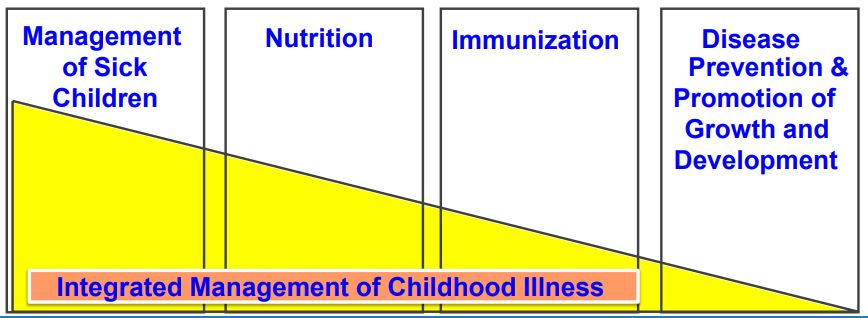
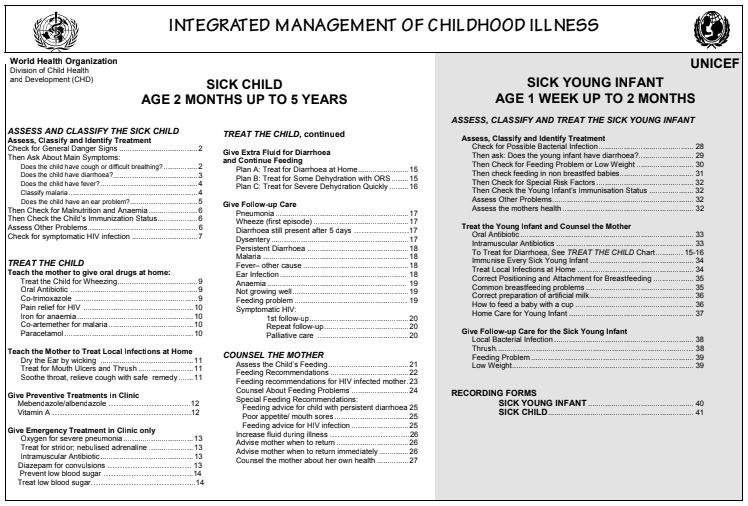
Unfortunately, most of our practitioners did not receive that training when they were in school. Karimu is helping to correct that by funding training for the doctors and head nurses in Ayalagaya, Arri, Berim, Dabil, Ufana, Riroda, Mamire, Endsako, and Duru within the district as selected by the District Secretary of Health. The trainers are district physicians who have been certified in this training.
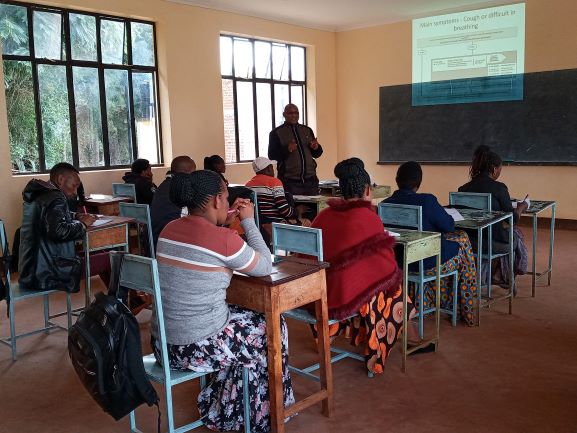
The curriculum includes symptoms and treatment for diarrhea, colds, flu, fever, bacterial infections, malaria, pneumonia, respiratory disease, dehydration, malnutrition, failure to feed, dysentery, meningitis, mastoiditis, ear infection, anemia, and HIV.
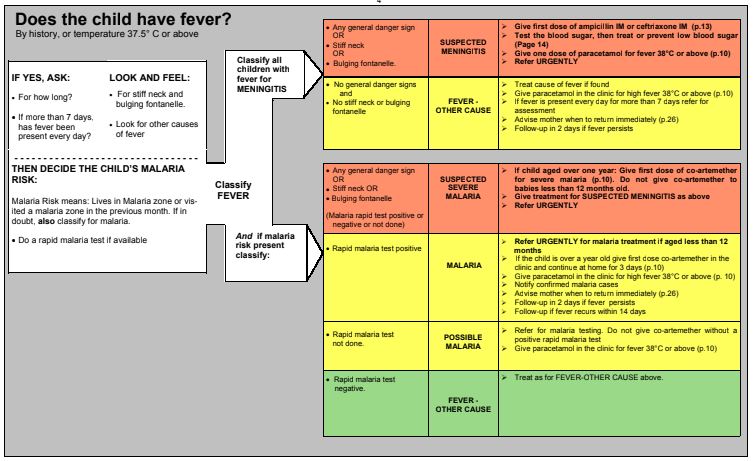
In addition, the trainers will provide practical training in the clinic and will visit quarterly for 12 months to ensure integration of the material. The participants will have consulting access via a WhatsApp group to answer questions as they arise and monthly reports must be provided to track their progress. The reports will come to Karimu and the Ministry of Health and are designed to a) assess the management of the patient, b) track the impact on the top 10 diseases, c) and assess overall quality of care.
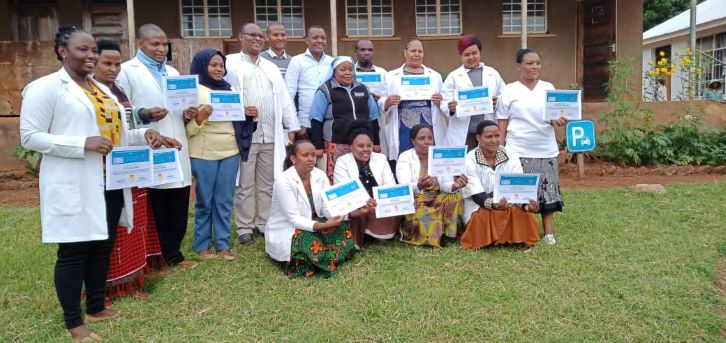
The first supervision report indicates that all facilities have the supplies needed for taking vital signs. Over 90% of vital signs were taken without reminding staff. All patient records were readily available. Children were diagnosed with respiratory infections, ear infections, diarrheal diseases, malaria, malnutrition, and anemia. Some additional tools may be needed for assessing malnutrition which will be included in the malnutrition intervention in 2022.
Update November 2022: While we were very happy with the initial training, we have been disappointed with the follow up supervision. It is not economically advantageous for the original trainers to travel back to Ayalagaya and Arri, so they haven’t done so. We conducted our own assessment of the clinics in September and October and concluded:
- Children are having their vitals checked and recorded properly.
- Clinics have the equipment and supplies necessary to diagnose and treat children.
- Healthcare workers have a general knowledge of the integrated management of childhood illnesses, but with staff turnover, there is inconsistent knowledge.
- Medical staff need additional training and supervision, preferably on site, to reinforce the training.
We are working with the District Medical Officer to arrange some onsite supplementary training and supervision.
Update March 2024: We have agreed with the District Medical Officer that we will pay to repeat the training with the same content, but this time payments will be staggered and aligned with 4 quarterly visits and resulting reports based on observing the staffs’ understanding and clarifying practices as needed.
Update August 2024: The IMCI training was repeated in August 2024 for staff at all health centers and dispensaries within our service area, plus others as recommended by the District Health Minister from nearby wards. Five health centers (Dareda Kati, Galapo, Ayasanda, Magugu, and Madunga Kati), twelve dispensaries (Gajal, Managha, Madunga, Dohom, Arritsaayo, Mwikantsi, Sabilo, Secheda, Mwada, Boay, Mawemairo, Duru) and one hospital (Babati District Hospital) sent nurses to be trained. As before, the training was given in two classes, each a week long. Instruction included a pre-test baseline assessment, in class lectures, hands-on practical training conducted at the Dareda Kati Health Center, and an end examination. In total, thirty-two professionals attended the training. We saw score improvement from an average 57% on the pretest to 80% for the final exam across both classes. Now all treating physicians and nurses within our service area had been trained either through Karimu training or by virtue of their university training.
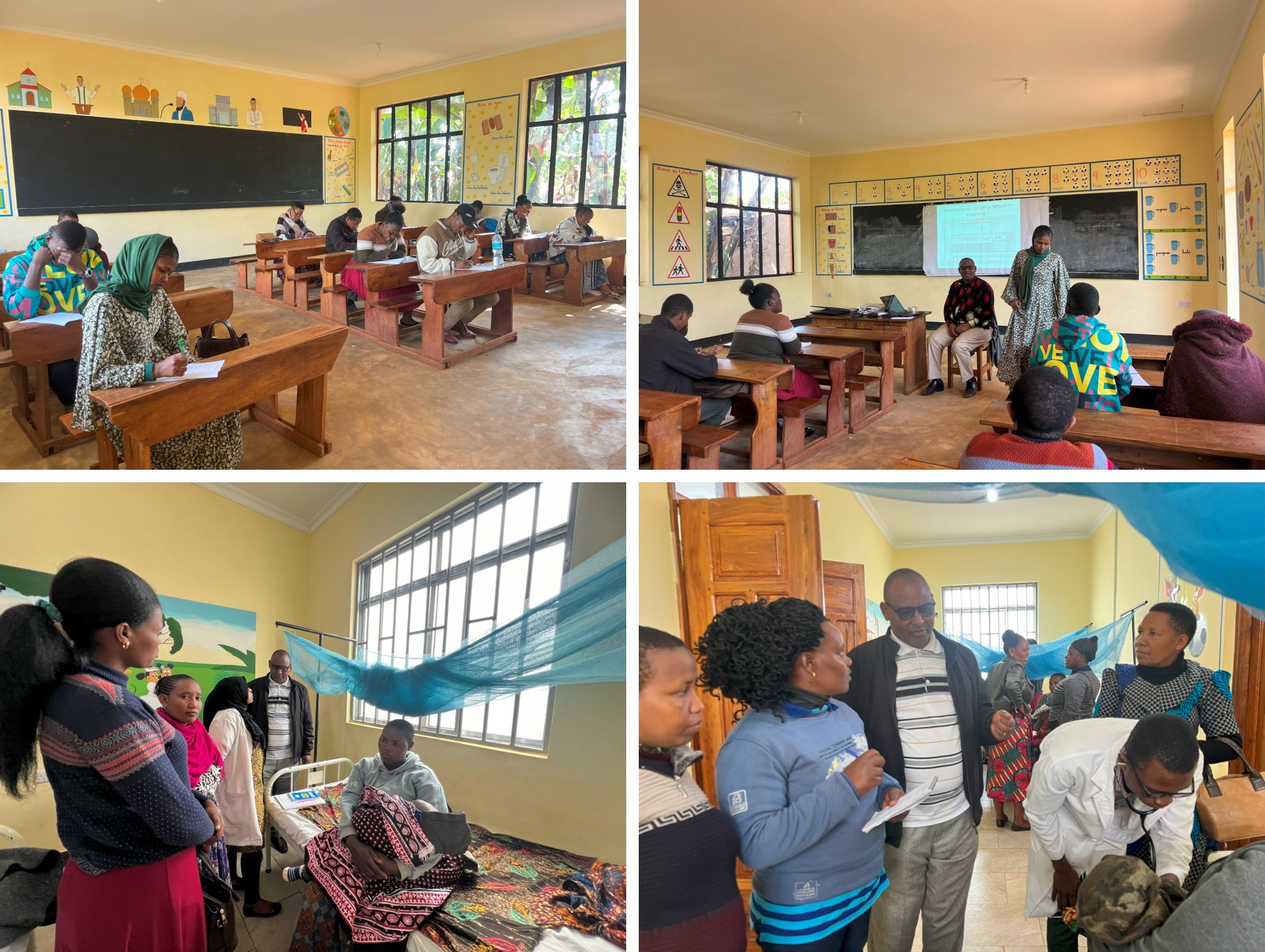
Now the trainers will conduct quarterly supervision for 1 year. Reports will include:
-
Details about how well vital signs are being taken and recorded.
-
Information about childhood illness with the expectation that they will be decreasing.
-
Observations about how the medical staff is applying the knowledge obtained in the training.
-
Description of what the staff is doing to increase community awareness on children’s health, especially vaccinations, hygiene, and nutrition.
-
Points requiring improvement and how the medical staff plans to address them based on a discussion between the trainers and the staff during their visit.
To make sure the supervision happens this time, Karimu is paying the transportation costs for the doctors who are trainers and a portion of their total fee with each satisfactory quarterly supervision visit and report.
Update Dec 2024: The supervisors have conducted 2 visits to the dispensaries. We saw a marked improvement across all dispensaries (both inside and outside our immediate service area) from an average of 81% to an average of 94%.
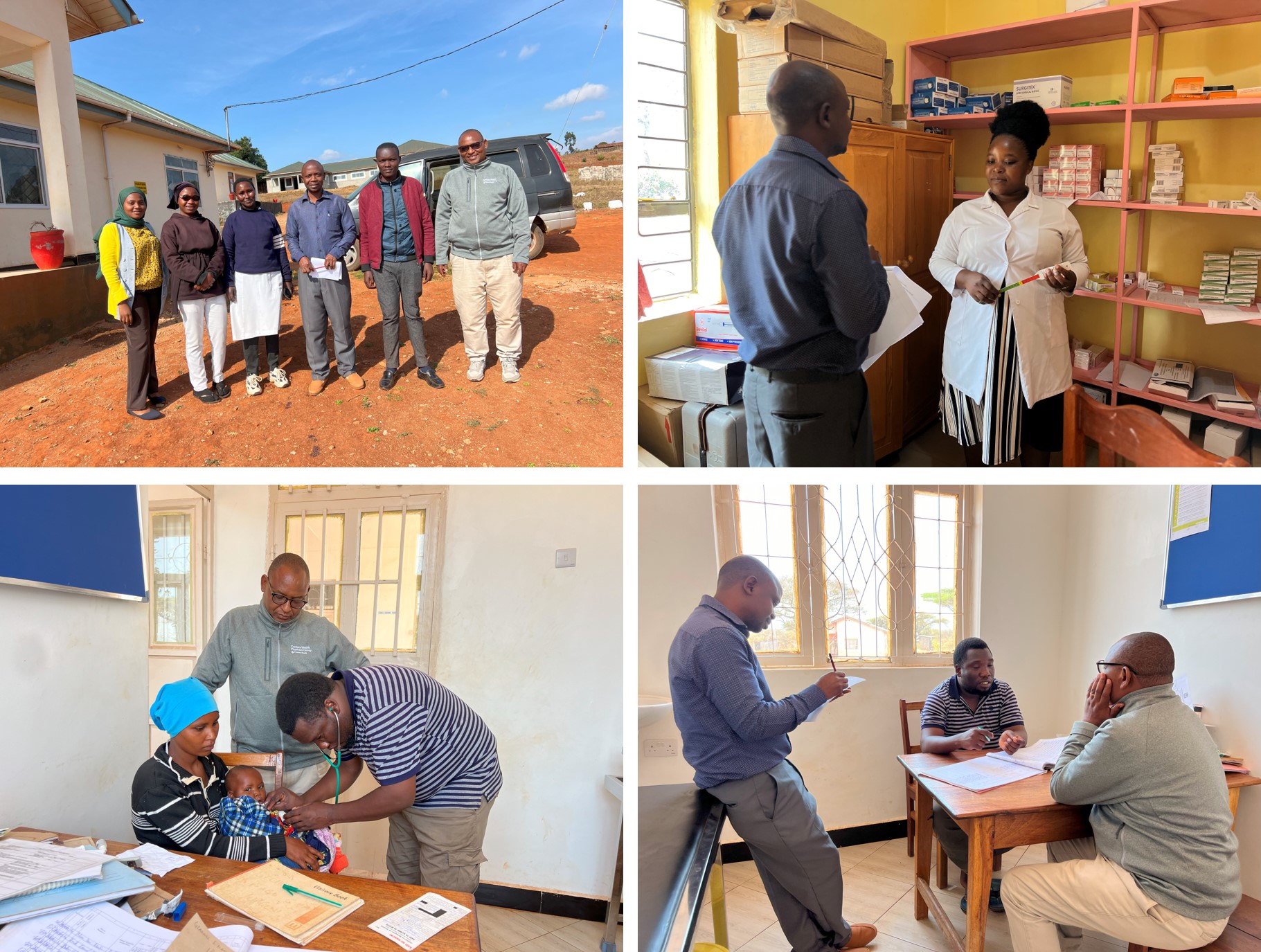
Update Dec 2025: The final supervisory visit was conducted in the 3rd quarter of 2025 with excellent results. Over 4 days the Dareda Kati Health Center and 18 dispensaries across the Babati district were visited and assessed. The assessment focused on diagnosis and treatment for children under 5 and whether the Integrated Management of Childhood Illnesses protocol was properly applied. This included interviews with various staff members, review of patient records including taking vital signs and vaccination information, and availability of equipment and medications needed for diagnostics and treatment. Across all 18 facilities the average score was 96% with scores ranging between 88% and 97%.
The following table shows the quarterly scores across the facilities in our service area (including Dabil ward just added this year)
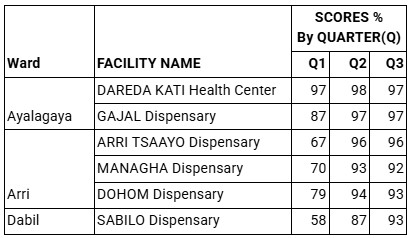
Healthcare staff were applying IMCI approaches on managing children’s illness and were adhering to guidelines properly. Identified gaps were primarily related to equipment which was either on order or budgeted.
Based on the observed improvements, Karimu is closing this project.
Benefits:
-
Proper diagnosis and treatment of childhood illnesses
-
Reduced child and infant mortality
-
Improved child health and development
Cost: $29,694
Learn more about Karimu Health Program .


